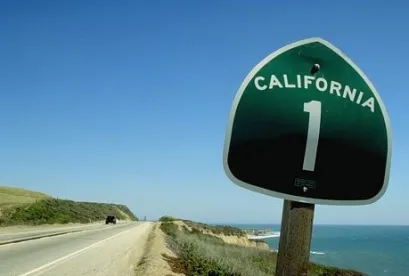California’s Proposition 13 prevents the assessed value of California real property from increasing by more than 2% per year, unless there is a change of ownership or completion of new construction. On November 3, 2020, California voters will decide whether most commercial and industrial property should be removed from the protections of Proposition 13, with the result that such property would be subject to tax based on its fair market value.
If passed, Proposition 15, formally known as The California Schools and Local Communities Act of 2020 but colloquially known as the Split Roll Initiative, (“Prop. 15”) will amend the California Constitution to require that most commercial and industrial real property be assessed based on its market value beginning with the lien date for the 2022-23 fiscal year. Prop. 15 thus creates a different taxing scheme for commercial and industrial property, resulting in a “split roll” for property tax assessment.
Affected commercial and industrial properties that have not been reassessed for several years, and thus are currently assessed well-below market value, could see a substantial increase in property taxes beginning with the first year of reassessment. After the initial reassessment, affected properties would be reassessed to market value no less frequently than every three years. Since property market values tend to increase more than 2% annually, the passage of Prop. 15 would also likely represent a meaningful year-over-year increase in California property taxes for commercial and industrial properties going forward.
Prop. 15 would not apply to residential property, including multifamily residential properties and vacant land zoned for residential use. Nor would it apply to real property used for commercial agricultural production. Residential portions of mixed-use property would also be excluded from Prop. 15, subject to certain conditions.
Certain commercial and industrial property would also be excluded from Prop. 15’s taxing scheme. Commercial and industrial property with a fair market value of less than $3 million would continue to be assessed under the current Proposition 13 scheme, though the value of commonly-owned properties must be aggregated for purposes of determining applicability of the exclusion. The Legislature would have the authority to exempt the commercial share of mixed-use property, provided 75% or more of the property by square footage or value is residential. Additionally, the reassessment of commercial and industrial property occupied 50% or more by a small business (as defined in Prop. 15) would be delayed until the 2025-26 fiscal year.
Prop. 15 would not impact any property that is exempt under the California Constitution, such as free public libraries and museums, free public schools, and property used exclusively for religious worship. However, it could have unintended consequences with respect to certain types of property currently eligible for an exemption or exclusion, including commercial and industrial active solar energy systems and rainwater capture systems.
Prop. 15 would also completely exempt tangible personal property used by a small business (as defined in Prop. 15), and provide an exemption for the first $500,000 of business equipment and fixtures for other taxpayers. The exemption amount could be increased by the Legislature, but could not be lowered.
Fiscal analysts estimate that if passed Prop. 15 would generate annual revenues of approximately $6.5 billion to $12.5 billion, subject to market conditions. The revenues would first be allocated to the state to make up for decreases in personal and corporate income taxes resulting from increased deductions for property taxes, and to counties to cover the costs of implementation. The remaining amounts would be distributed to local governments and special districts, as well as to school districts and community colleges via a new Local School and Community College Property Tax Fund.
Supporters of the proposition argue that the revenues will address statewide education inequities by taxing large corporations that have benefited for decades by paying property taxes assessed at purchase prices that are significantly lower than current market values. The initiative is purported to generate significant state revenues with no additional burden on homeowners, renters or small businesses.
Opponents of Prop. 15 argue that the increase in taxes puts more pressure on businesses during an economic downturn, significantly impacting job creation and employee compensation. The initiative undermines longstanding Proposition 13 taxpayer protections and opponents fear future tax proposals will similarly impact residential homeowners.
Increasing property tax costs will ultimately affect operating budgets and impact decisions relating to leasing, acquisition, disposition, and financing transactions. Costs of increased property taxes could be passed along to tenants and consumers. On the other hand, with a rising state budget deficit, the revenues generated from Prop. 15 may seem necessary to support communities during this economic downturn caused by the COVID-related pandemic.





 />i
/>i

